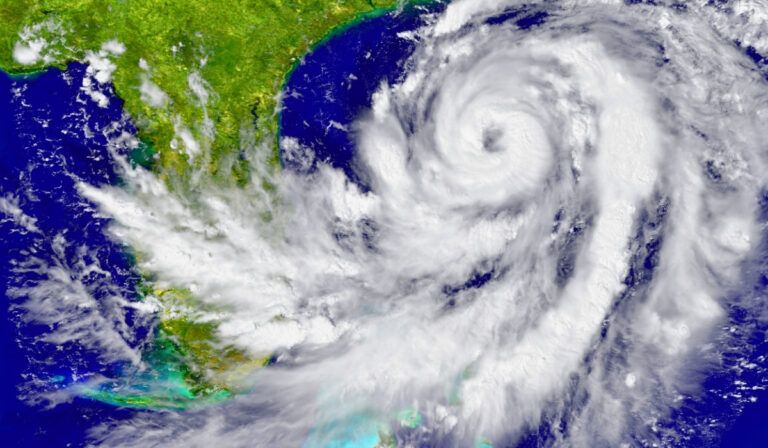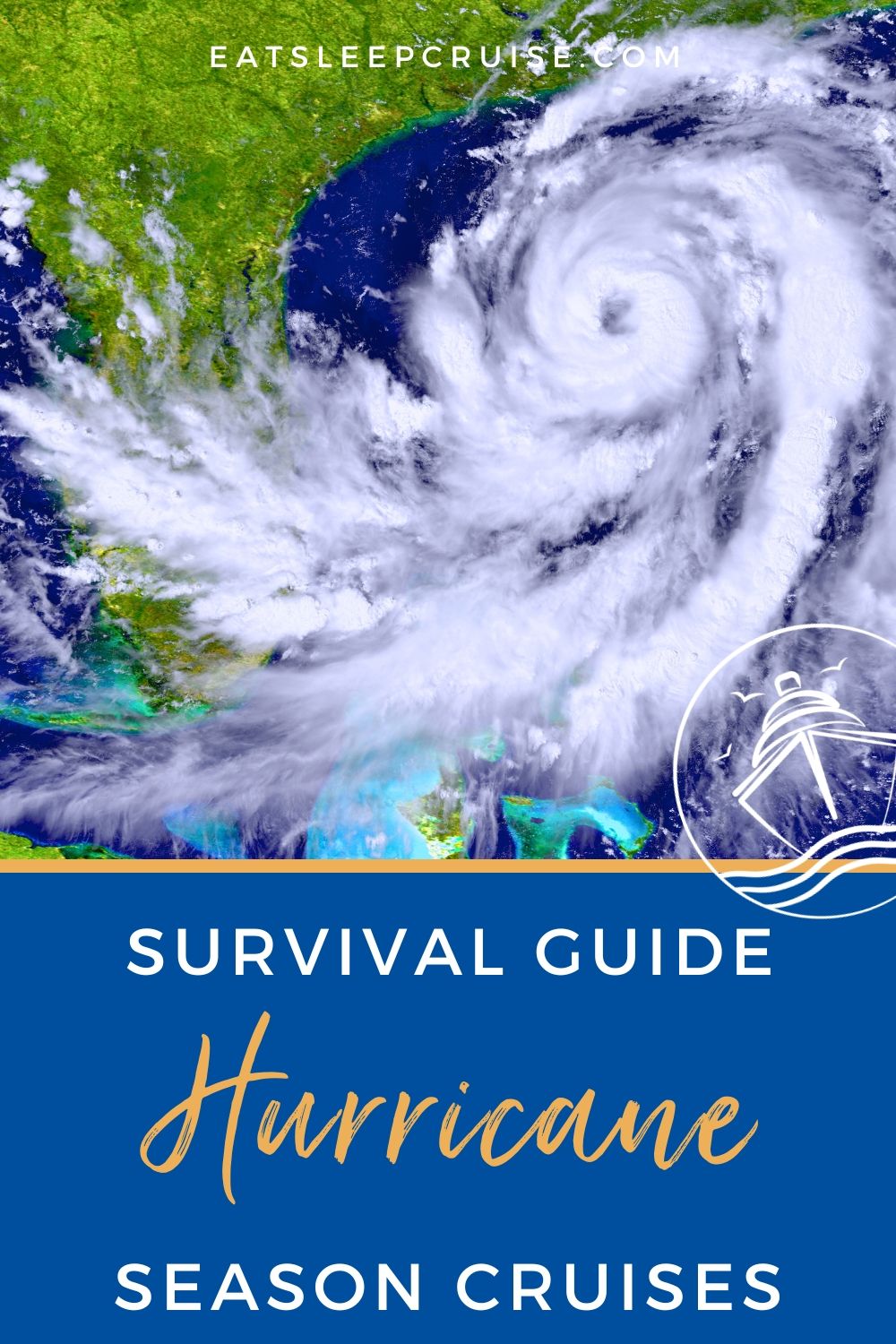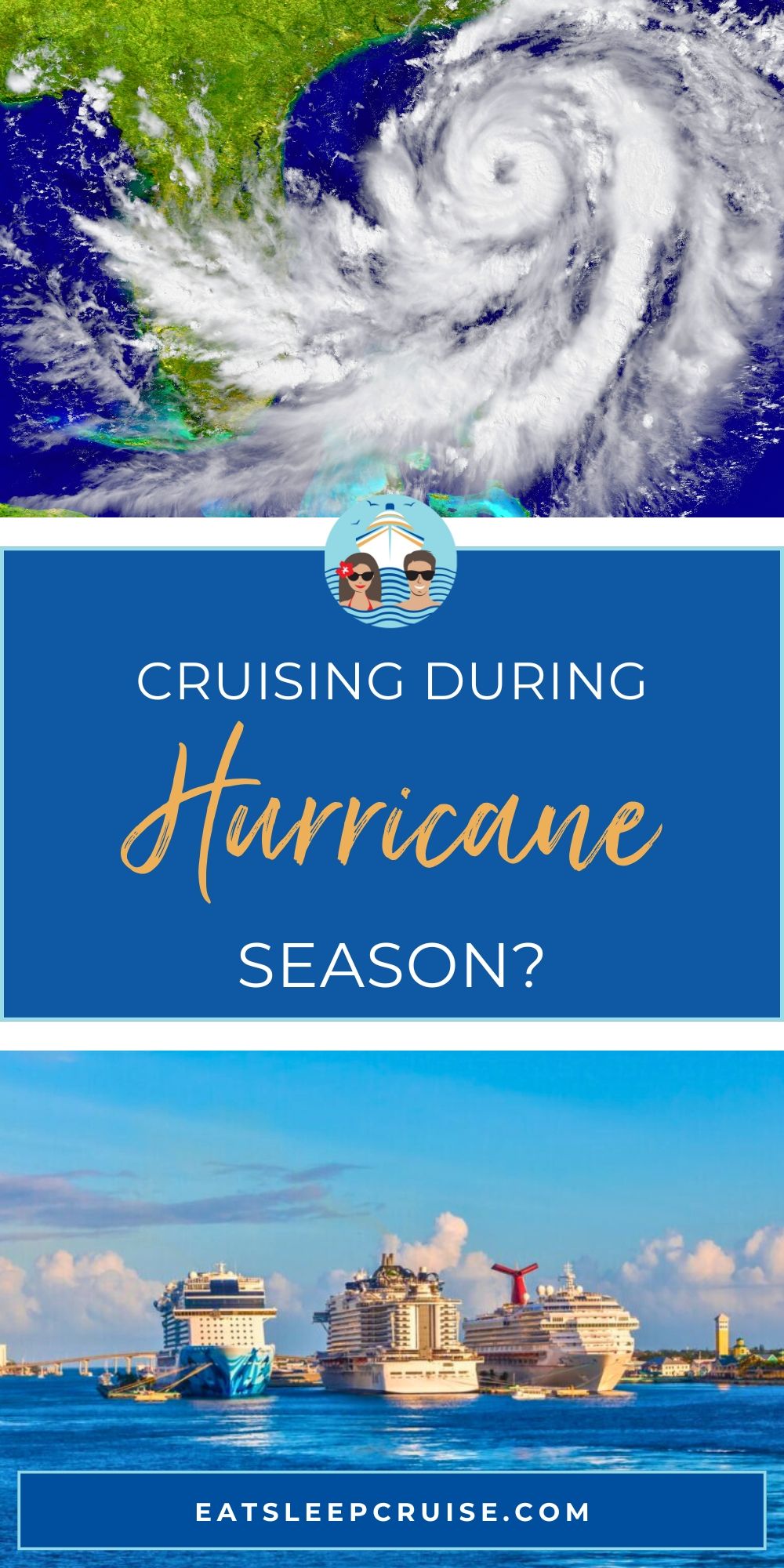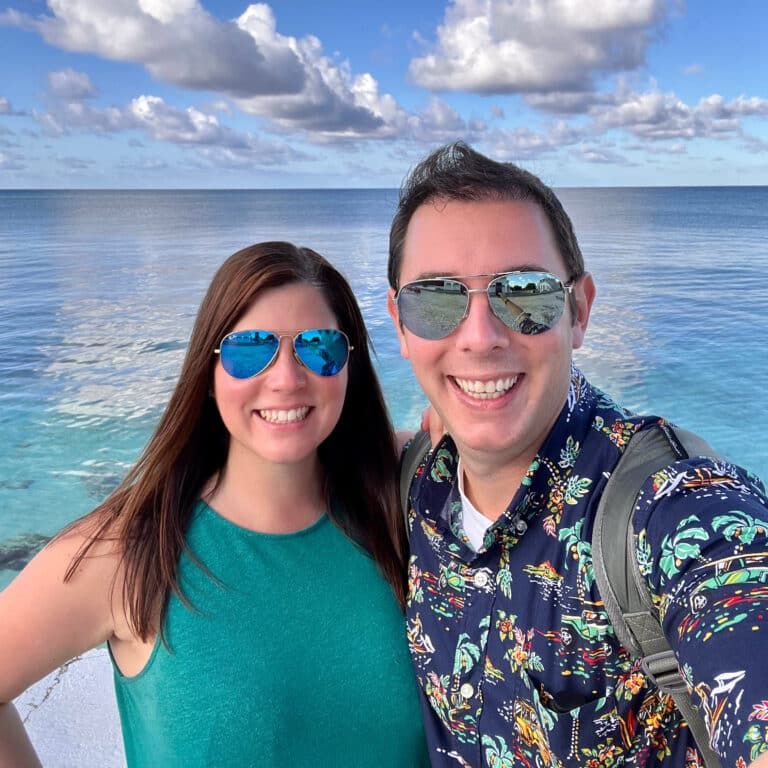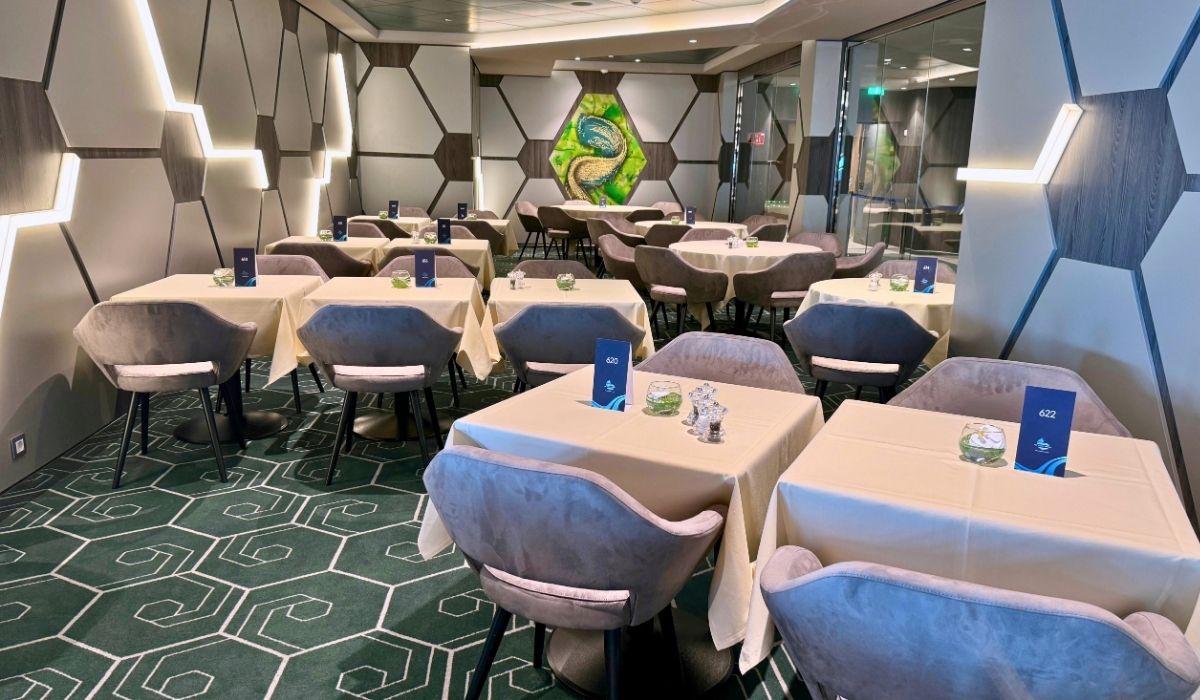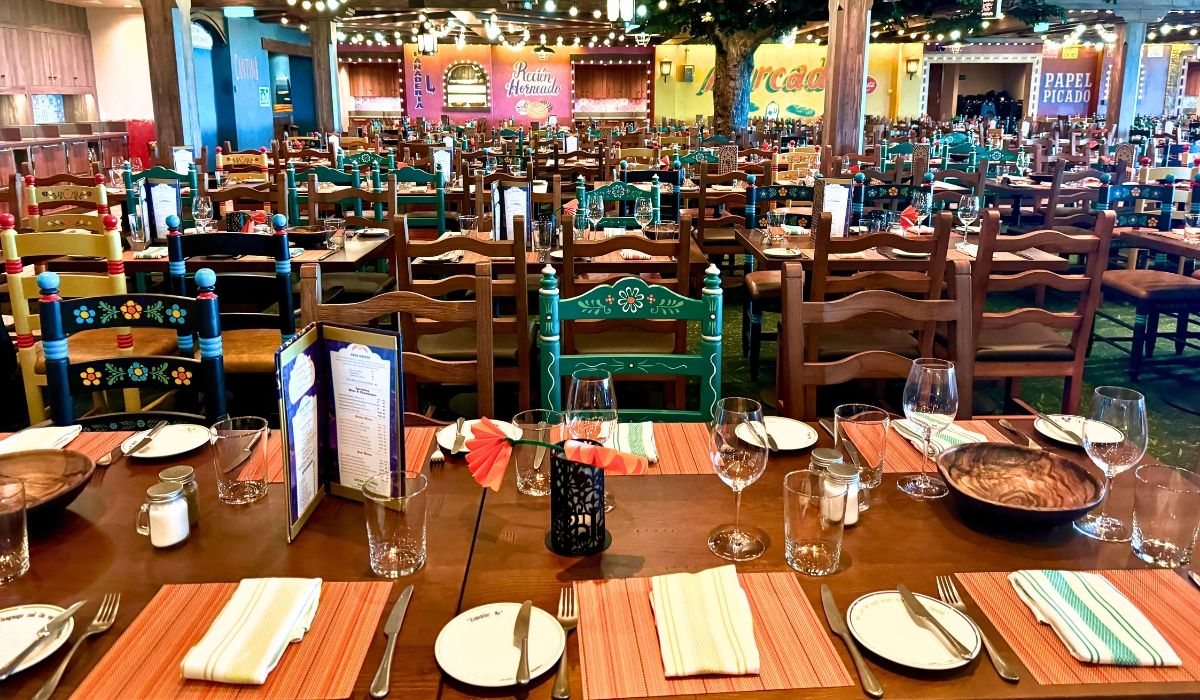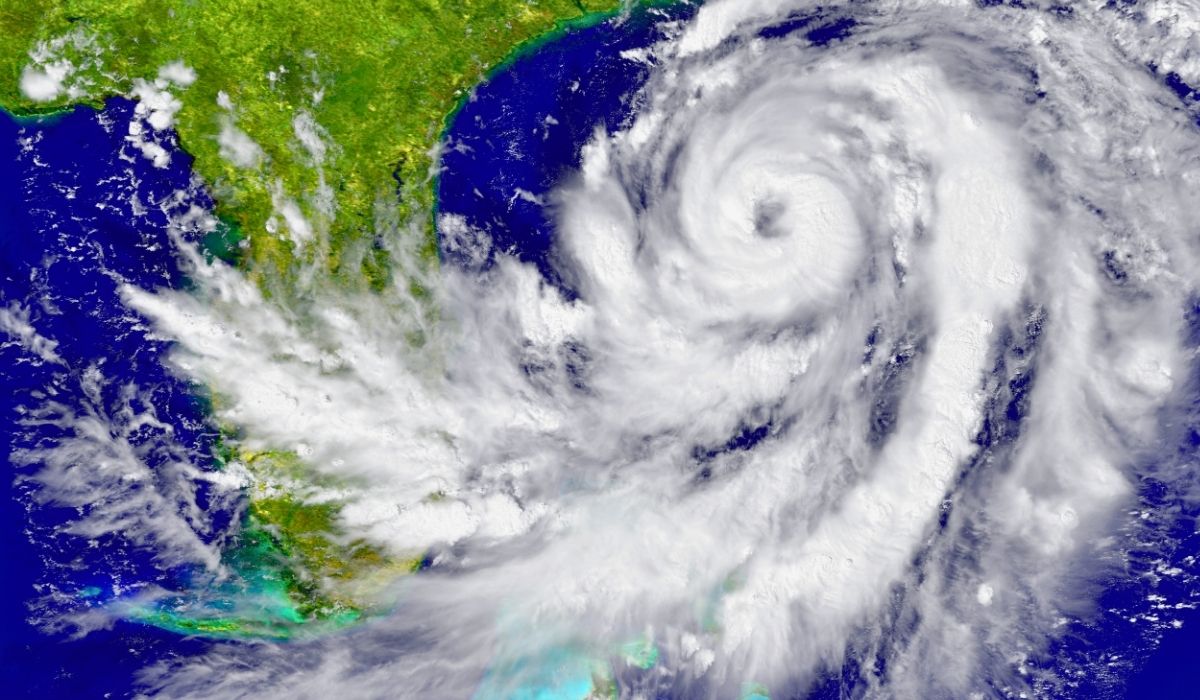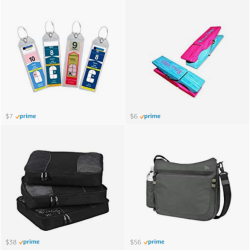Are you dreaming of the Caribbean sand and sunshine? Perhaps you’re tempted by those amazing hurricane season cruise deals? While cruising during hurricane season might seem risky at first glance, with proper planning and realistic expectations, it can offer an incredible vacation experience at a fraction of the cost. We’ve cruised during hurricane season and think you should consider it too, read on to find out why.
This comprehensive guide will walk you through everything you need to know about cruising during hurricane season in 2025, from understanding the risks to maximizing the benefits, to help you decide if it’s the right choice for your cruise vacation.
When is Hurricane Season?
The Atlantic hurricane season officially runs from June 1 to November 30, with the peak occurring between mid-August and early November. The Eastern Caribbean tends to experience more hurricane activity at the beginning of peak season, while the Western Caribbean remains vulnerable throughout the entire period.
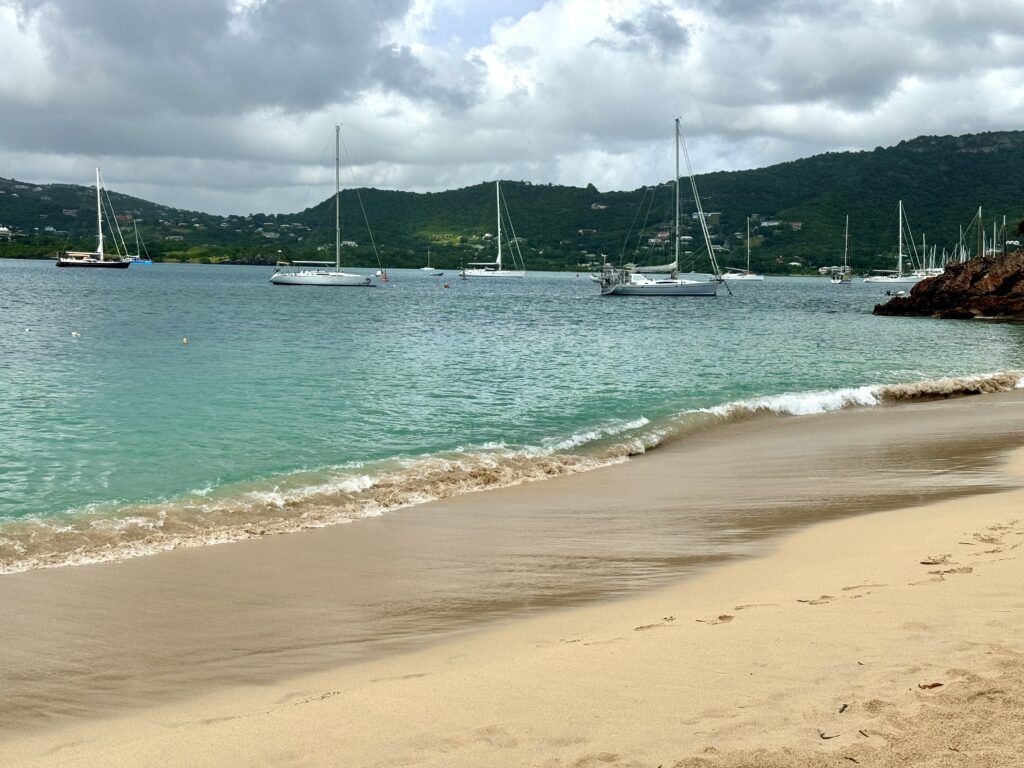
While we have a pretty flexible travel schedule, we understand your vacation schedule, or kid’s summer break, may dictate when you can escape on a cruise. So, knowing that you could encounter some unpredictable weather if cruising during hurricane season is crucial.
The hurricane season affects different regions at different times:
- Eastern Caribbean: Most vulnerable in August and early September
- Western Caribbean: Higher risk from September through late October
- Pacific Ocean: Can affect Mexican Riviera and Hawaiian cruises during similar timeframes
2025 Hurricane Forecast
For 2025 specifically, experts are predicting an “above normal” hurricane season with approximately 17 named storms, 9 of which are expected to become hurricanes.
The Hurricane-Free Zone
If you’re concerned about potential hurricane disruptions, consider sailing to destinations outside the hurricane belt. The “ABC Islands” (Aruba, Bonaire, and Curacao) rarely experience hurricanes even during peak season, making them excellent choices for a more predictable itinerary.
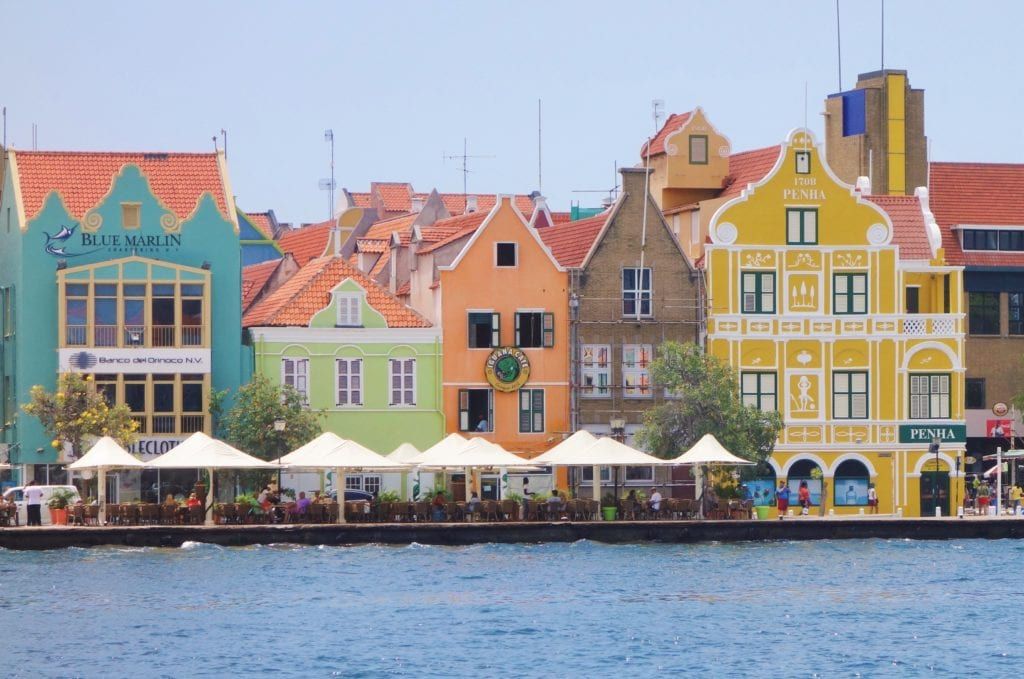
Other hurricane-free cruise options include:
- Alaska (summer season)
- Mediterranean (summer season)
Getting the Best Hurricane Season Deals
One of the biggest advantages of cruising during hurricane season is the significant cost savings. Hurricane season cruises often offer substantially lower rates than peak season sailings. For example, a 7-night cruise on Harmony of the Seas in early July 2025 costs around $1,500 per person for an inside room, while the same cruise in early September is just $850, a savings of over $650 per person!
Additional cost-saving opportunities include:
- Special promotions like “kids sail free” packages
- Onboard credit offers
- Discounted drink packages and specialty dining options
These deals are most prevalent during peak hurricane months (August-October) when cruise lines aim to fill ships during traditionally slower periods. Travel agents may run additional deals during this timeframe as well.
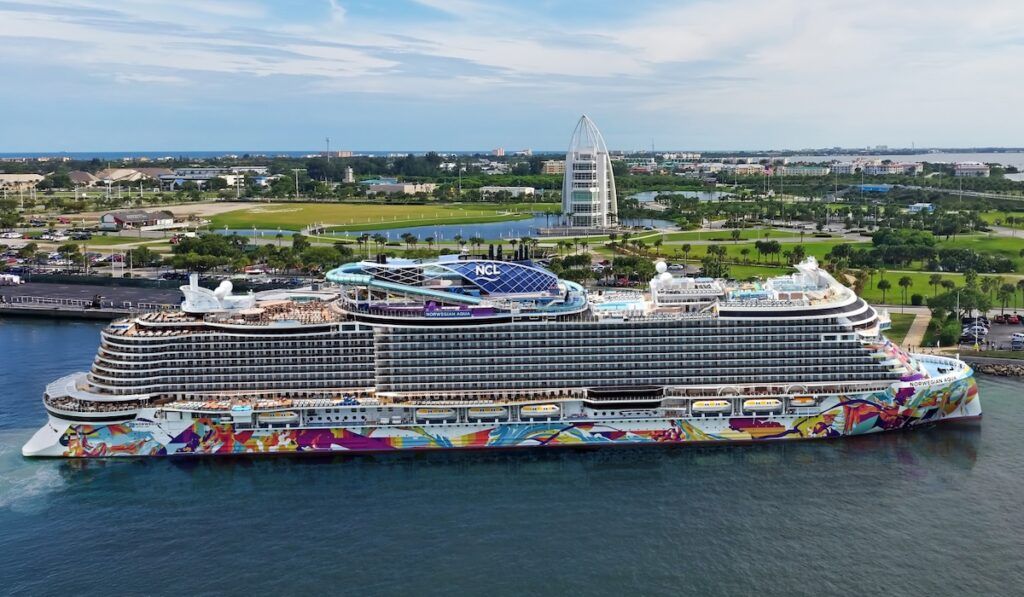
Will Your Cruise Sail as Planned?
The good news is that very few cruises are ever completely canceled due to hurricanes. Modern cruise ships are designed to safely navigate around storms, and cruise lines have sophisticated weather monitoring systems.
While it is rare that a cruise during hurricane season is canceled completely, it’s not impossible (especially with port closures). In this instance, the cruise line will offer full compensation or incentives for re-booking.
Here’s what typically happens when hurricanes threaten your cruise:
- Port changes: The most common adjustment is simply swapping ports of call on your schedule.
- Itinerary changes: An Eastern Caribbean itinerary might become a Western or Southern Caribbean cruise instead.
- Additional sea days: Some port stops may be canceled in favor of more days at sea.
- Order adjustments: The sequence of port visits might be rearranged to avoid storm paths.
Further, cruise ships can actually “outrun” storms if necessary. They may move up embarkation times to depart early to get out of the storm’s path. Or, they might delay returning to port, extendng your cruise by a day or two.
In our over 90 cruises, we’ve had a few encounters with hurricanes. Our most significant occurrence was a family vacation on Royal Caribbean’s Adventure of the Seas in 2015. A hurricane AND a tropical storm later, along with two itinerary changes, we survived. And our itinerary was swapped for the ABC islands, so we got to visit some of our favorite ports.
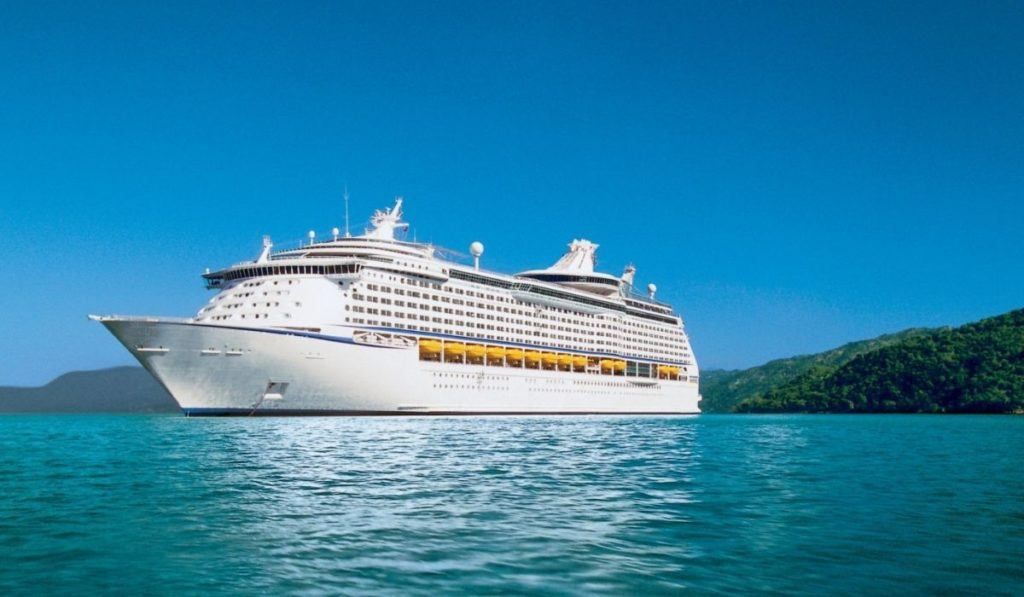
6 Essential Hurricane Season Cruise Planning Tips
1. Purchase Comprehensive Travel Insurance
Comprehensive travel insurance that covers trip cancellations, interruptions, and medical emergencies related to weather events is absolutely essential when cruising during hurricane season. This provides both peace of mind and financial protection if your plans are affected by a storm.
Important insurance considerations:
- Purchase insurance before a storm is named
- Look for policies covering travel delays, missed connections, and evacuation
- Consider “cancel for any reason” coverage for maximum flexibility
- Review covered reasons carefully before purchasing
2. Build Buffer Days Into Your Schedule
The cruise lines will do everything within their power to ensure vessels cruising during hurricane season depart. Still, there are no guarantees about your travel to and from the cruise port being affected by bad weather.
When flying to your embarkation port, try to arrive at least one or two days before your cruise departs rather than cutting it close with same-day arrival. This buffer provides leeway if flights are delayed or canceled due to weather. It’s also important to monitor weather forecasts for your return trip home.
3. Book Shore Excursions Strategically
When planning port activities during hurricane season, be sure to check the tour company’s policies before reserving. We recommend only purchasing tours from companies that offer refunds if your ship misses the port.
- Book through the cruise line: Ship-sponsored excursions will be automatically refunded if your ship can’t make it to port.
- Check third-party policies: If booking independent excursions, only use operators that offer full refunds for weather-related cancellations such as Shore Excursions Group.
- Stay flexible: Have backup plans for each port in case tours get canceled due to weather.
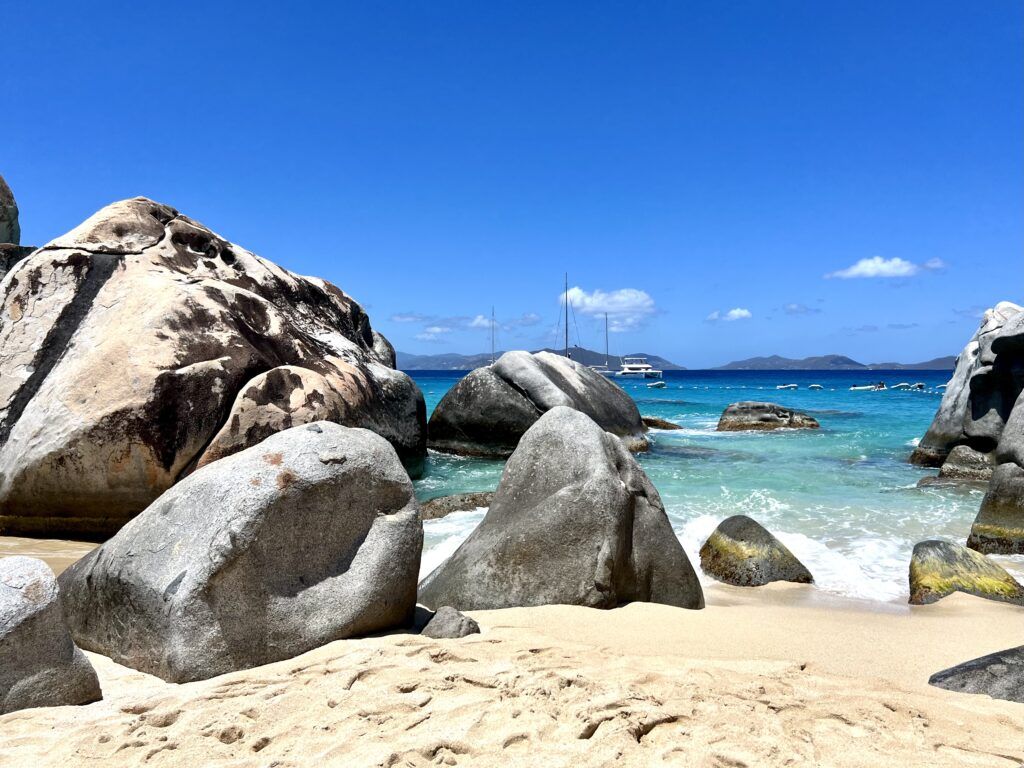
4. Pack Strategically for Changing Weather
Hurricane season can bring unexpected weather shifts, so pack accordingly. We recommend always packing the following, but especially during hurricane season:
- Lightweight, packable rain jacket or poncho
- Extra layers for cooler, windy conditions
- Waterproof bag for electronics and valuables
- Extra footwear
- Anti-seasickness remedies
- Extra medications in case of delays returning to port
5. Monitor Weather Before and During Your Cruise
Start monitoring tropical storm and hurricane conditions about a week before your departure. Be proactive by contacting your travel agent or monitoring the cruise line’s website directly for updates if your cruise appears to be in the likely path of a storm.
Even if your cruise is a go, weather might still be an issue during your sailing. While ships can elude the worst of a storm, you might not be able to totally avoid the weather pattern. So, you should also monitor the weather forecasts for potential impacts to disembarkation and return travels.
6. Be Flexible
Cruisers need to have an open mind and be willing to roll with whatever Mother Nature, and the cruise lines, throw their way when cruising during hurricane season. The best made plans can very easily come undone.
For our Adventure of the Seas cruise, we spent months planning with our family and picking the perfect shore excursions for each island. All that planning was essentially thrown-out the window. Once onboard, we waited in line at the shore excursions desk with every other passenger. Knowing this ahead of time, you can be prepared and still enjoy your cruise. After all, you are STILL on vacation!
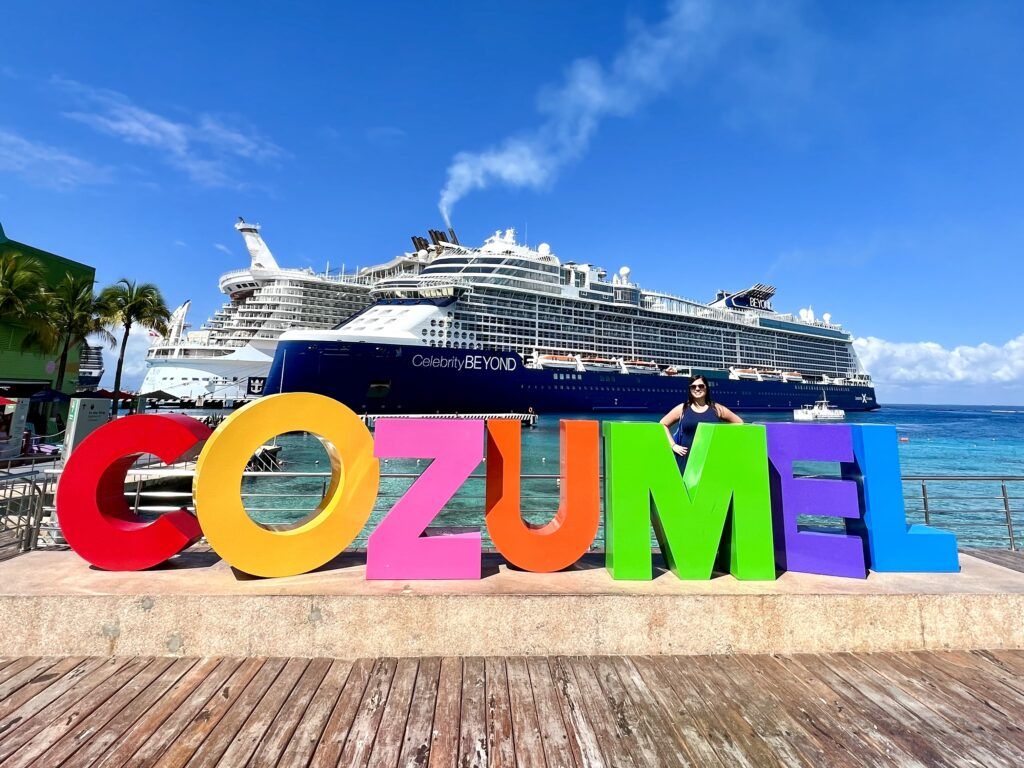
Embracing the Hurricane Season Cruise Experience
Despite potential challenges, hurricane season cruises offer unique advantages beyond just lower prices:
- Fewer crowds: Both on ships and in ports of call
- More availability: For specialty restaurants, premium activities, cabin selection, and shore excursions
- Surprise destinations: Itinerary changes might introduce you to ports you wouldn’t have visited otherwise
The most important factor for enjoying a hurricane season cruise is adopting the right attitude:
- Embrace flexibility: View itinerary changes as new adventures rather than disappointments
- Focus on ship experiences: Modern cruise ships offer countless amenities regardless of ports
- Appreciate the value: Remember the significant savings you’re enjoying
- Trust the professionals: Cruise lines have extensive experience navigating hurricane season
During our Adventure of the Seas cruise, we encountered an unprecedented two storms in one week. We were able to stay clear of the storms for the majority of our cruise, but could not completely evade the second storm on our return trip to Puerto Rico. This meant that the 6 beautiful days of sun and 90 degree weather ended on the last sea day with heavy rains, wind, and some rather crowded indoor venues.
Royal Caribbean was quick to respond to the situation by offering extra activities and shows. The cruise line also changed the location of some events to accommodate the larger crowds. If the rain, wind, and rocky seas are not completely avoidable when you cruise during hurricane season, don’t worry as there will still be plenty of things to do.

Final Thoughts: Is a Hurricane Season Cruise Right for You?
Cruising during hurricane season can be an excellent option for:
- Budget-conscious travelers
- Vacationers who prioritize the cruise experience over specific ports
- Flexible travelers who don’t mind the “go with the flow” approach
- Repeat cruisers looking to experience new ships at lower prices
- Travelers seeking fewer crowds and a more relaxed atmosphere onboard and ashore
However, it might not be ideal if:
- Your heart is set on visiting a particular island or itinerary
- You’re prone to anxiety about weather and potential changes
- You have inflexible return travel arrangements
- You’re prone to motion sickness
With proper preparation, realistic expectations, and a spirit of adventure, cruising during hurricane season in 2025 can offer an unforgettable vacation experience that’s gentle on your wallet but rich in memories.
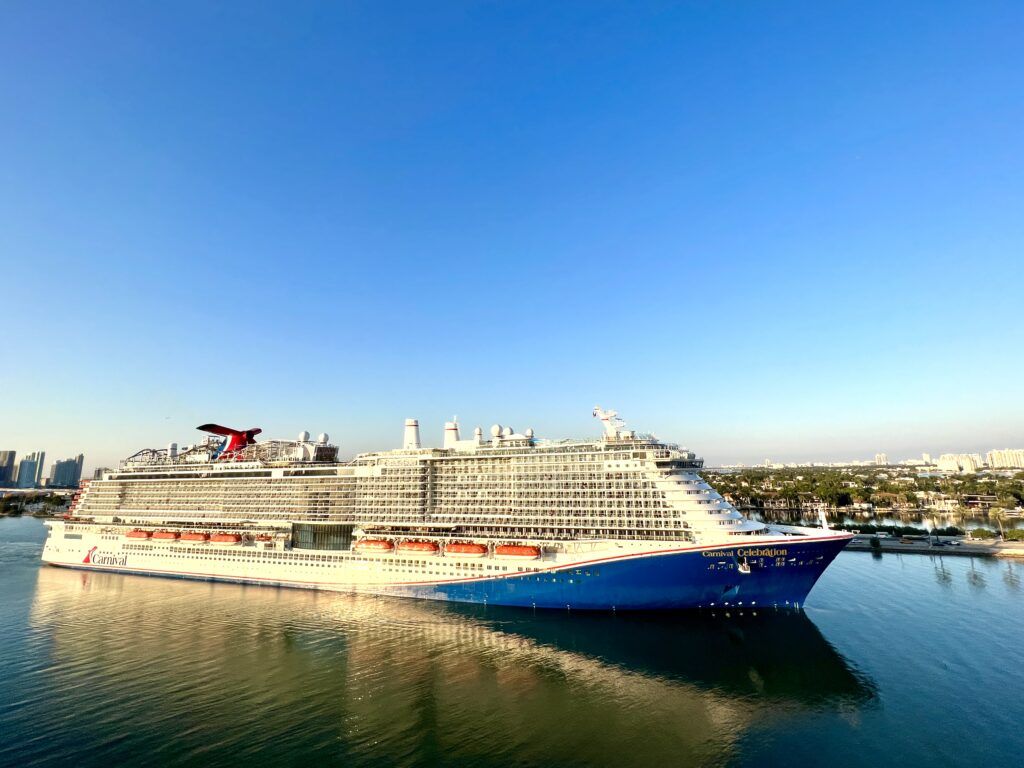
Frequently Asked Questions About Cruising During Hurricane Season
Is it safe to cruise during hurricane season?
Yes, cruising during hurricane season is generally safe. Modern cruise ships are equipped with advanced weather monitoring systems and can navigate around storms. Cruise lines prioritize passenger safety above all else and will modify itineraries as needed to avoid dangerous weather. Ships are built with stabilizers that help maintain smooth sailing even in rougher seas.
What are the dates of hurricane season in the Caribbean?
Hurricane season in the Caribbean officially runs from June 1 to November 30, with peak activity occurring between mid-August and early November.
How much cheaper are cruises during hurricane season?
Cruises during hurricane season can be 30-50% less expensive than during peak season. You’ll also find more promotions and value-added perks during this period.
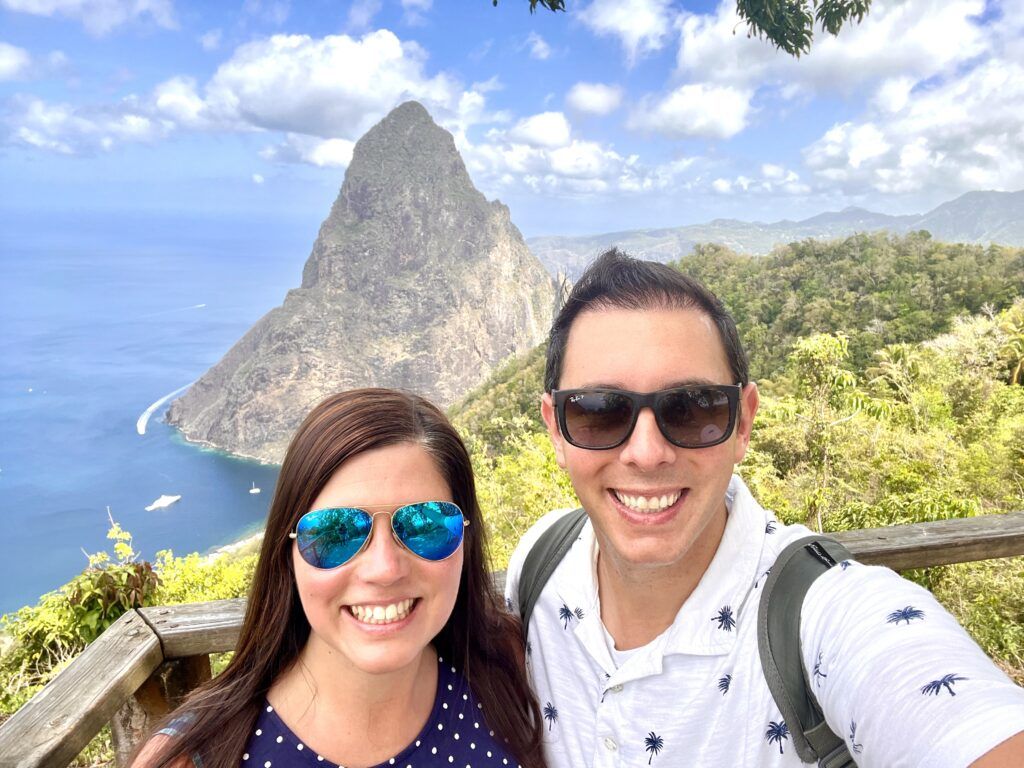
What happens if a hurricane hits while I’m on a cruise?
If a hurricane threatens your cruise route, the ship will change course to avoid the storm. Cruise lines constantly monitor weather patterns and will modify itineraries accordingly. You might visit different ports than originally planned or experience additional sea days. In rare cases where a storm threatens your return port, your cruise might be extended by a day or two until it’s safe to return.
Will I get a refund if my cruise itinerary changes due to a hurricane?
Cruise lines typically don’t offer refunds for itinerary changes due to weather, but they will refund any prepaid shore excursions for ports that are skipped. With that said, many do offer compensation for significant disruptions in the form of onboard credit, future cruise credits, or partial refunds. Most cruise lines will also provide free WiFi to help passengers adjust their post-cruise travel plans if the ship’s return is delayed.
Which cruise destinations are least affected by hurricanes?
The “ABC Islands” (Aruba, Bonaire, and Curacao) in the Southern Caribbean are located outside the main hurricane belt and rarely experience direct hurricane impacts.
Should I purchase travel insurance for a hurricane season cruise?
Yes, comprehensive travel insurance is essential for hurricane season cruises. Look for policies that specifically cover weather-related cancellations, delays, and interruptions. Most importantly, purchase your insurance before a storm is named, as coverage may be denied for named storms that formed before your policy purchase date.
Can I cancel my cruise if a hurricane is forecasted?
Generally, cruise lines don’t allow penalty-free cancellations simply because a hurricane might affect your cruise. This is why travel insurance is crucial. However, if you purchase “cancel for any reason” insurance, you can typically cancel up to 48 hours before departure for any reason and receive a partial refund (usually 50-75% of your trip cost).
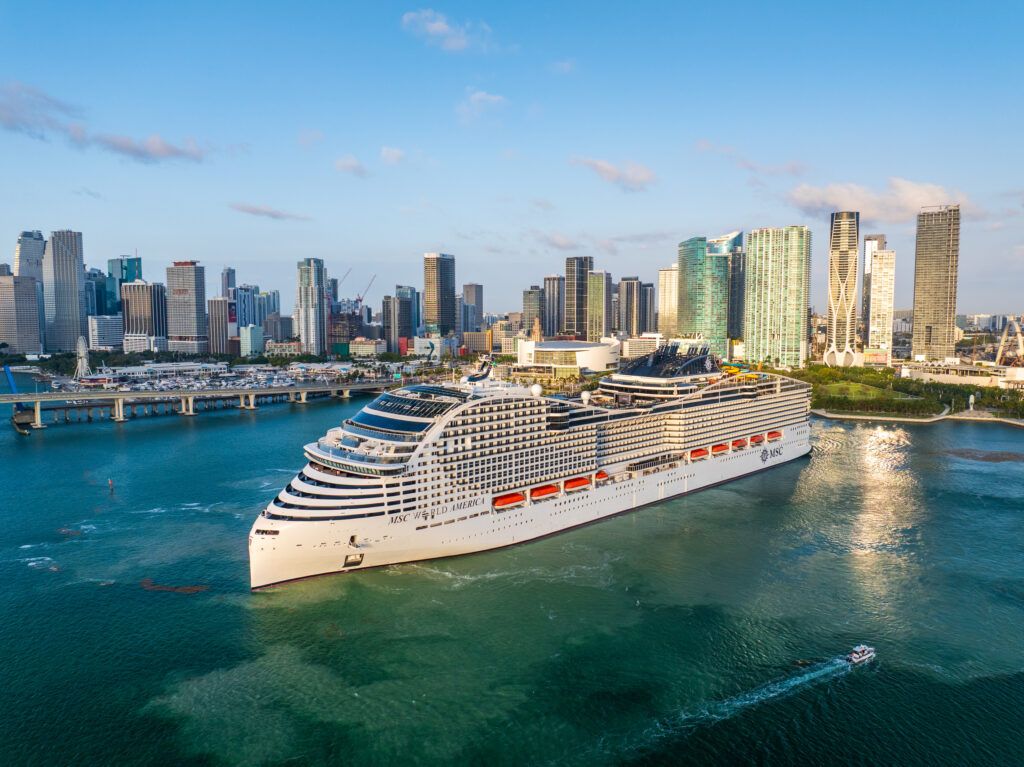
How far in advance do cruise lines notify passengers about itinerary changes?
Cruise lines monitor weather systems constantly and typically notify passengers of major itinerary changes before departure when possible. Once onboard, the captain will make announcements about any necessary route adjustments as weather conditions develop.
Are certain cruise ships better for sailing during hurricane season?
Larger, newer ships generally offer more stability during rougher seas. Ships with advanced stabilizer systems provide a smoother sailing experience if you encounter storm-related weather. Additionally, larger ships offer more indoor entertainment options if outdoor activities are limited due to weather.
How can I prepare for potential seasickness during hurricane season?
Even when avoiding direct storm impact, seas can be choppier during hurricane season. Pack motion sickness remedies like over-the-counter medications, acupressure wristbands, or patches. Book a midship cabin on a lower deck where movement is minimized. Stay hydrated and avoid excessive alcohol if you’re prone to motion sickness.
What should I pack differently for a hurricane season cruise?
Include a lightweight, packable rain jacket, extra footwear that can get wet, waterproof bags for electronics, and perhaps some indoor activities like books or games. Consider packing additional medication in case your cruise is extended by a day or two due to weather delays.
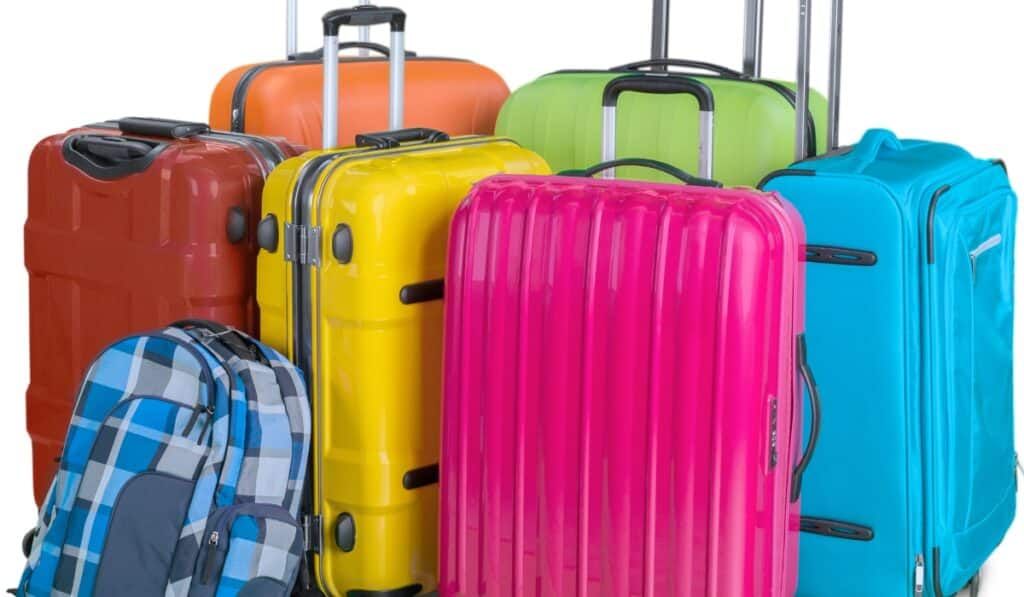
What happens if my flight to the cruise port is canceled due to a hurricane?
If your flight is canceled due to weather, the cruise line is not obligated to wait for you or provide compensation. This is why arriving at least one day before your cruise and purchasing travel insurance are always recommended.
Do cruise ships have meteorologists?
Most major cruise lines employ dedicated meteorologists who monitor weather patterns 24/7 from their headquarters. While they typically aren’t onboard, they work closely with the ship’s navigation team to track storms and recommend route modifications.
Are certain months of hurricane season less risky than others?
June and November, which mark the beginning and end of the official hurricane season, typically see less storm activity than the peak months of August through early October.
What happens if my home port closes due to a hurricane?
If a hurricane threatens your embarkation or disembarkation port, the cruise line may delay departure, return to a different port, or extend your cruise by a day or two. In these cases, cruise lines often help arrange alternative transportation, though additional costs might not be covered unless you have travel insurance.
Comments
Have you cruised during hurricane season? How have you handled bad weather or itinerary changes on your previous vacations? Drop us an anchor below to share your stories about those cruises that did not go exactly as planned because of Mother Nature.


